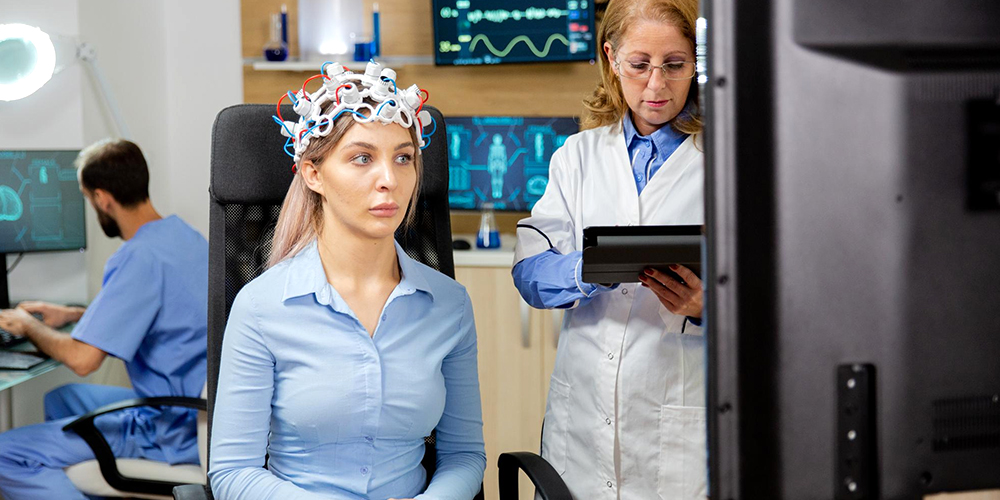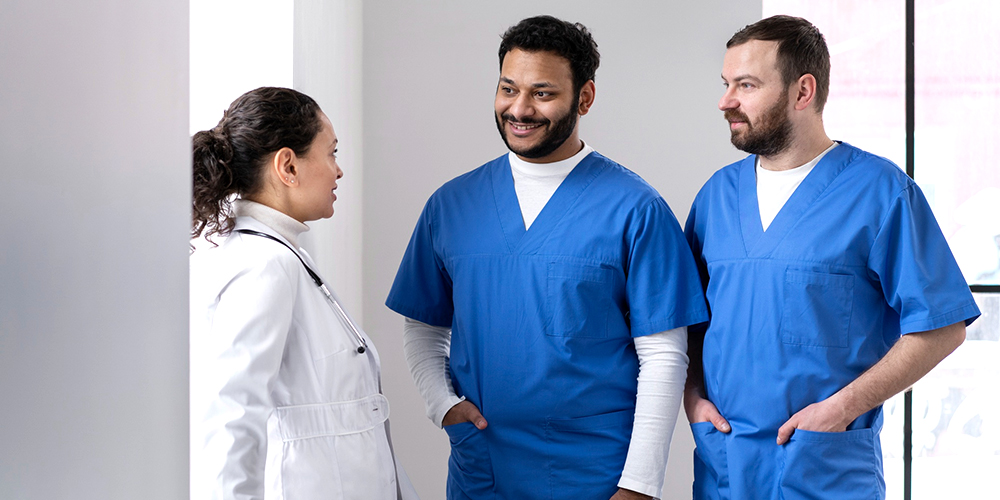24 | April | 2024

What is critical thinking in nursing? - Skills required for the nurses
How can nurses improve their critical thinking skills? - A guide
Some people think that critical thinking is being able to question what you believe and checking previously held assumptions. Others say that critical thinking is shown by skills like finding problems and determining the relevance of information in a situation.
Critical thinking can make nurses better at their job. It will help them get more done. Nursing can be tough sometimes. So, getting better at critical thinking can help you to diagnose problems more accurately. It will help to give better treatments and provide reassurance that you are providing the correct treatment.
What is critical thinking?
Critical thinking is the process of collecting information and then forming an opinion after fully assessing all the information. Nurses in UK use critical thinking to decide what medical care a patient needs. It can be deciding which tests to do or talking about their ideas with doctors. Nurses are usually the first to see a patient. They notice symptoms and can suggest treatments that might help.
Nurses in UK can also use critical thinking to prioritise the tasks that are the most important and manage their time effectively.
How do nurses apply critical thinking during their work in UK?
Successful nurses go above and beyond their usual duties to give good care to patients. A nurse in UK might have to do tasks from wound dressing to checking vital signs during the shift. But it takes critical thinking to see how changes in the wound might affect blood pressure and temperature, and when those changes might need quick medical help.
Nurses look after lots of patients at once. Being really good at critical thinking is important when undertaking a number of tasks ensuring that their patients stay safe and get the care they need.
What are the steps to critical thinking process?
Before you start using those smart thinking skills, you first must figure out what problem you're trying to solve.
Collecting different kinds of information is really important for using critical thinking. If you don't gather enough information your decision-making might not be accurate.
Just like gathering different types of information is crucial, it's also important to figure out how useful each information source is. Remember having data doesn't always mean it's important.
A key aspect of critical thinking is making decisions without letting bias influence you. To achieve this, you must step back from the process and question the assumptions you're making.
Lastly it is time to reach a decision. To find the best answer connect the reasons to the outcomes. Use the information you've collected to judge the fairest conclusion.
Talking is an important skill for smart thinkers. It's not just about thinking alone, you also need to tell other people what you've decided. If there are many possible answers tell them all.
The seven-step critical thinking process gives you an outcome, and then you must act on that solution. After you put your decision into action see if it worked well or not.
Critical thinking in nursing is essential for providing safe and patient-centred care. By continuously honing and using these skills you can effectively handle challenges in the constantly evolving healthcare setting.
Wonderstaff is a top nurse staffing agency in the UK. We provide a diverse selection of skilled nurses and experienced medical professionals.
What are the critical thinking skills in nursing?
Interpretation means making sense of information and explaining it in simpler words. Nurses interpret a patient’s symptoms and test results to help figure out what might be causing their illness.
Inference means making a guess based on facts and information. Nurses make inferences using what they know about medicine and the patient's condition.
Analysis means looking closely at a situation or question to understand it better. Nurses analyse a patient's diagnosis, symptoms, and medical background to plan for treatment.
Observation skills help smart thinkers see beyond what's obvious. To be good at critical thinking you should consider different perspectives. You can use your observation skills to spot possible problems.
Evaluation means figuring out if information is trustworthy and if it fits the situation. During the day nurses check if their treatment plan has helped the patient get better.
Explanation means being able to clearly talk about why you made a decision. When talking to patients and other medical staff nurses explain the reasons and facts behind their decisions.
Self-regulation means thinking about what you do and how you think. Nurses might think about how they talk to patients and colleagues, or how they understand new information to see if what they're doing works well.
Problem-solving means using smart thinking to get information about a problem and come up with ideas to fix it.
Integrity means being open to hearing and learning from others, even if it means changing how you see things or what you do to provide better care for your patient or work better with your team.
How can nurses improve critical thinking skills?
Think about creating a group and teaming up with a mentor who can help you go through case studies. This gives you a learning-focused setting where you can study information to come to conclusions. You can improve your skills in communication, analysis, and teamwork with your colleagues.
This lets you find errors you might have made and start new habits that could help you make smarter choices. For example, after an argument or a tough meeting, you might replay the conversation in your mind and consider how you could have reacted differently. It's crucial to review the choices you made throughout your day and decide if you needed more information before acting.
If you find yourself spending more time and effort on a problem than you expected, it's a good idea to ask another nurse or colleague to help you figure it out. Doing this shows that you respect their expertise, and it might also improve your own knowledge.
To develop critical thinking skills, you need to go through a deliberate process of learning techniques and using them regularly until they become natural for you. One of these techniques is nurturing a curious mind. Asking meaningful questions leads to helpful answers and is central to critical thinking.
Keeping up with new research in the medical field is crucial because it often changes how medical professionals do their job. By staying updated you will have more information to think about when understanding and analysing a patient's medical condition.
Thinking carefully in nursing means being aware of yourself and staying focused on what's happening now. In a busy shift it's easy to get distracted while trying to do everything for your patients. Giving medication, changing bandages, and setting up IVs while also checking on your patient's feelings and thoughts can make it hard to stay focused and handle stress as a nurse.








